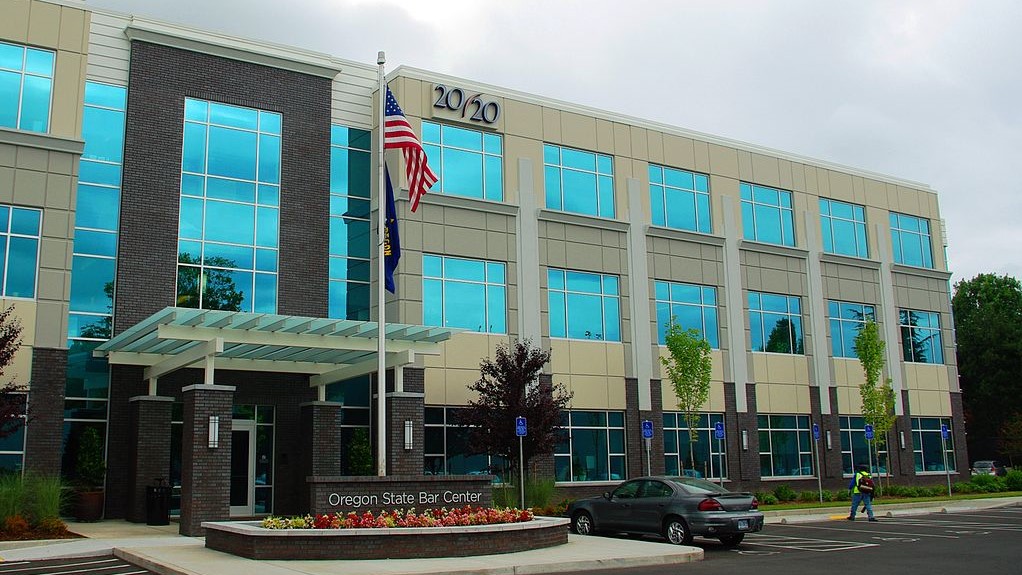Oregon has taken two major steps towards enhancing access to justice in the state, as the Oregon State Bar’s Board of Governors has voted to approve a recommendation to create a paraprofessional licensing program in the state and another to enable individuals to become licensed lawyers without attending law school, by completing a four-year tutelage program.
At its meeting Sept. 27, the OSB’s Board of Governors (BOG) voted to approve the two recommendations. In both cases, the approvals mean that the bar will initiate further actions to develop more-detailed plans and regulations for implementing the recommendations. Ultimately, both programs will require approval by the Oregon Supreme Court before becoming final.
With regard to paraprofessional licensing, the BOG will now appoint an implementation committee to plan for the establishment of the program. With regard to the bar admission program, called Writing for the Bar, the BOG will forward the recommendation to Oregon’s Board of Bar Examiners with a request that it take the steps necessary to establish the program.
Kateri Walsh, the OSB’s public relations manager, told me that the bar plans to act quickly to convene the implementation committee, with initial appointments and timing to be announced as early as next week.
Paraprofessional Licensing
The recommendation for the paraprofessional licensing program (which can be found at page 111 of the BOG’s agenda) stems from a June 2017 report of the OSB Futures Task Force, which called for establishment of a program for licensure of paraprofessionals who would be authorized to provide limited legal services, without attorney supervision, in family law and landlord-tenant matters.
“The most compelling argument for licensing paraprofessionals is that the Bar’s other efforts to close the access-to-justice gap have continued to fall short,” said the Futures Task Force report. “We must broaden the options available for persons seeking to obtain legal services, while continuing to strive for full funding of legal aid and championing pro bono representation by lawyers.”
The program would be similar to Washington state’s limited license legal technicians (which I wrote about in depth in 2015 in the ABA Journal) and Utah’s licensed paralegal practitioner program.
As proposed to and approved by the OSB BOG, the Oregon program would allow licensed paraprofessionals to prepare and file documents in certain family law and landlord-tenant matters, provide information and advice relating to those matters, communicate and negotiate with the opposing party, and provide emotional and administrative support to the client in court.
Licensed paraprofessionals would be required to comply with rules of professional conduct, meet CLE requirements, carry malpractice insurance, and use written fee agreements disclosing the limited scope of their services.
This is the second time the BOG has voted to approve an implementation committee for this program. After the BOG appointed an implementation committee in 2017, several board members expressed concern about moving forward without first seeking member feedback.
According to the report submitted last week, when OSB staff sought feedback on an ad hoc basis, they found that, while some bar members, such as legal aid lawyers and many judges, support licensing paraprofessionals, many others strongly oppose the idea.
“It is worth noting that the two states with some type of limited scope license for the practice of law have adopted those programs only after pressure from either their supreme court or state legislature,” the report noted.
Writing for the Bar
The Writing for the Bar Program would allow individuals to sit for the bar exam and be licensed to practice without having to attend law school, with the goal of reducing law school debt and enabling more people — and a greater diversity of people — to enter the practice.
Under the program as proposed (starting at page 114 of the agenda), an applicant for the bar would be required to have at least a bachelor’s degree, be of good moral character, and complete a four-year tutelage program. During the four-year program, the applicant would have to work under a tutor, at least 32 hours a week, in a law office, legal department or court. The tutor would be required to provide instruction on certain specified subjects.
The recommendation for the program came from the November 2018 report of the OSB’s Alternative Pathways Taskforce Committee (which starts at page 115 of the agenda).
Last week’s approval by the BOG means that it will forward the taskforce report to Oregon’s Board of Bar Examiners with a request that it take the steps necessary to establish the Writing for the Bar Program. Ultimately, the program would require the approval of the Supreme Court.
Other states that allow bar admission for individuals who have not completed a full three-year course at an accredited law school are California, Maine, New York, Washington, Vermont and Virginia.
 Robert Ambrogi Blog
Robert Ambrogi Blog